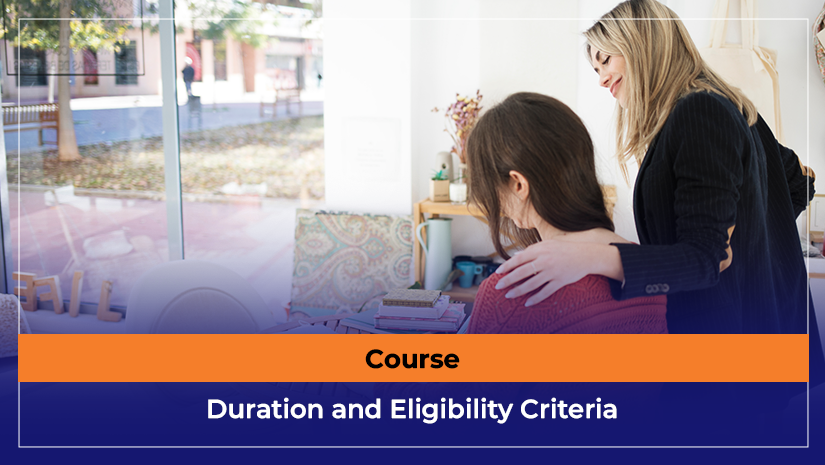
Choosing the best diploma courses after 10th standard is a crucial decision that significantly influences one's academic and professional trajectory. The diversity and scope of international diploma courses available for students today are truly extensive.
This global landscape of education provides students with opportunities to explore, specialize, and gain valuable skills. Today, we will discuss after 10th diploma courses listed briefly below.
Pursuing diploma courses offers several advantages. By this, it became an attractive option for individuals looking for a streamlined and specialized education. Here are some key benefits:
Short Duration: One of the primary advantages of diploma courses is their relatively short duration compared to traditional degree programs. Most diploma courses can be completed in a shorter timeframe, typically ranging from a few months to two years. This allows individuals to enter the workforce more quickly, saving both time and resources.
Specialized Learning: Diploma courses are designed to provide specialized knowledge and skills in a particular field. This focused curriculum allows students to delve deep into their chosen subject matter, gaining practical and targeted expertise. This specificity enhances their readiness for employment in industries that value specialized skills.
Early Career Start: With the shorter duration and focused curriculum, diploma courses enable individuals to start their careers at an earlier age compared to traditional degree programs. This early entry into the workforce allows a student to gain valuable work experience. It also builds a professional network to progress in their careers sooner.

Diploma programs typically provide practical and hands-on training in a specific area of study. Here's a diploma courses list after 10th is given below.
Diploma in Mechanical Engineering: A Diploma in Mechanical Engineering typically includes subjects like fluid mechanics, machine design, thermodynamics, and manufacturing processes.
Diploma in Civil Engineering: The Diploma in Civil Engineering commonly covered subjects include structural engineering, surveying, construction management, and geotechnical engineering.
Diploma in Computer Engineering: This diploma course covers computer programming, digital electronics, operating systems, and network fundamentals.
Diploma in Electrical Engineering: The Diploma in Electrical Engineering has subjects including electrical circuits, power systems, control systems, and electronics.
Diploma in Nursing: Anatomy, physiology, pharmacology, nursing ethics, and clinical rotations in various healthcare settings are all covered in the courses.
Diploma in Pharmacy: The Diploma in Pharmacy focuses on subjects including pharmacology, pharmaceutical chemistry, drug dispensing, and patient counseling.
Diploma in Medical Laboratory Technology: This diploma program covers clinical chemistry, microbiology, hematology, and pathology, along with hands-on laboratory training.
Diploma in Radiography: The Diploma in Radiography has subjects including radiographic physics, anatomy, radiographic positioning, and radiation protection.
Diploma in Cyber Security: This course covers network security, ethical hacking, cryptography, and incident response.
Diploma in Data Science: The Diploma in Data Science course includes statistics, machine learning, data visualization, and data mining techniques.
Diploma in Web Development: It has subjects including HTML, CSS, JavaScript, server-side scripting, and web application development.
Diploma in Software Engineering: This diploma program focuses on subjects like software design, programming languages, software testing, and project management.
Diploma in Journalism: This course covers subjects like news reporting, feature writing, media ethics, and multimedia journalism.
Diploma in Digital Marketing: This course includes search engine optimization (SEO), social media marketing, content creation, and digital analytics.
Diploma in Filmmaking: This diploma program has subjects that include scriptwriting, cinematography, film editing, and film production management.
Science and Research: A Diploma in Biotechnology focuses on subjects like molecular biology, genetic engineering, bioinformatics, and bioprocessing techniques.
Diploma in Nanotechnology: This course has subjects that include nanomaterials, nanoelectronics, nanomedicine, and applications of nanotechnology in various industries.
Diploma in Forensic Science: This diploma program has subjects covering forensic biology, forensic chemistry, crime scene investigation, and forensic DNA analysis.
Diploma in Banking: It has Subjects covering banking operations, financial management, risk assessment, and regulatory compliance.
Diploma in Financial Accounting: The course has subjects including financial statement analysis, budgeting, taxation, and accounting software applications.
Diploma in Computerized Accounting: This diploma program covers subjects like accounting software applications, data management, financial reporting, and analysis using technology.

The duration and eligibility criteria for diploma courses can vary significantly depending on the specific field of study, the level of complexity, and the policies of the institution offering the program. Here's a general overview of the variability in duration and eligibility for diploma courses:
Duration: Many diploma programs last between six months to one year. Certain diploma courses, especially in technical or specialized fields, may have a longer duration, extending up to two years.
Eligibility: The eligibility criteria for diploma courses often require candidates to have completed their secondary education (10th or 12th grade, depending on the educational system). The minimum score for admission depends on the course. A GPA of 3.0 is to be the absolute minimum to get onto a course. International students also need an overall IELTS score of 5 to 5.5.
Institutional Policies: The policies regarding duration and eligibility can vary between institutions. Different colleges or universities may have unique criteria based on their academic standards, resources, and program objectives.
The admission process for diploma courses varies depending on the type of institution, the specific diploma program, and whether the student is applying domestically or internationally.
Entrance exams are a part of the admission process for various diploma courses. Especially in fields that require a specialized skill set or knowledge. Here are some examples of entrance exams that might be required for certain diploma courses:

Engineering and Technology: The field of engineering and technology offers job opportunities from traditional industries like construction and manufacturing to emerging fields like artificial intelligence.
Healthcare and Medical Fields: The healthcare and medical fields offer a diverse range of job opportunities, such as physicians, pharmacists, nurses, dentists, and so on.
IT and Computing: Diploma courses in IT and computing provide a practical and focused approach to developing specific skills. It offers job opportunities like network technicians, software development, IT support specialists, digital marketing specialists, and many others.
Media and Communication: Graduates of this program find themselves well-prepared for roles that span various aspects of communication and media production.
Science and Research: It offers graduates the chance to contribute to the advancement of knowledge and scientific discovery. They find themselves well-prepared for diverse roles in the fields of science and research.
Commerce and Finance: Diploma courses in commerce and finance provide a gateway to a wide range of dynamic job opportunities in sectors such as finance, banking, accounting, and business administration.
Previously, we have discovered the diploma for all courses listed after the 10th. Choosing a diploma course from the list of diploma courses after 10 is a significant decision that can shape your future. To make the right choice, you can follow these factors below.
Now we have discovered the best diploma courses after 10th grade. Choosing the right diploma course is crucial as it significantly influences one's career trajectory. The selected course shapes an individual's skill set, knowledge base, and overall preparedness for the professional world.

February 25 2024

April 07 2025

February 25 2024

May 19 2024

 Dr. Shafiq
Dr. Shafiq
 February 25 2024
February 25 2024
 05:40:00
05:40:00
Do you have a career plan in a Senior Care or Supervisory Care position? If so, a Level 3 Diploma will help...
Read more...
 Dr. Shafiq
Dr. Shafiq
 February 25 2024
February 25 2024
 05:43:00
05:43:00
If you are living in the UK or planning to do that, you must know about the education system there. The UK&...
Read more...
 Dr. Shafiq
Dr. Shafiq
 February 25 2024
February 25 2024
 05:50:00
05:50:00
In the recent past, you had to have a four-year bachelor’s degree to start a career. With the rapid c...
Read more...